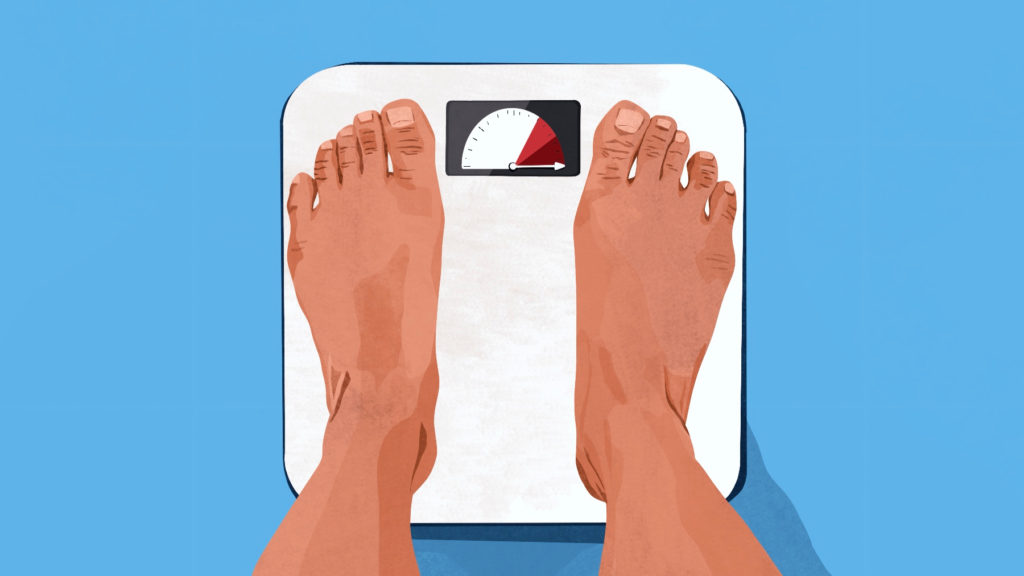A new generation of weight loss drugs promises to end obesity… but not its root causes.
Weigh In
As obesity rates and associated healthcare costs rise, drugs designed to treat type 2 diabetes are being prescribed for weight loss.
- 73% of US adults and 35% of children are overweight or obese, driving $173B in annual healthcare costs.
- Currently valued at $2.5B, the global market for anti-obesity drugs is estimated to reach $50B by 2030, per Morgan Stanley.
- Less than 3% of US adults eligible for anti-obesity therapeutics receive them, and the FDA recently approved the treatment for children.
Delivering impressive results while raising red flags, drugs like semaglutide are fueling a billion-dollar market.
Struggling to meet demand, Big Pharma is already cashing in. Meanwhile, a growing number of digital platforms are scaling up to deliver prescription meds.
Drug Lords
Pharma execs, researchers, and some doctors have used words like “breakthrough” and “blockbuster” to describe this burgeoning category of weight loss medications.
More specifically, glucagon-like peptide-1 (GLP-1) drugs stimulate insulin secretion, suppressing appetite and lowering blood glucose.
After gaining FDA approval to treat type 2 diabetes, the first GLP-1 was okayed for weight loss in 2010. More recently, positive trial results and social media acclaim fueled mainstream awareness and surging demand.
- Novo Nordisk’s semaglutide, branded as Ozempic and Wegovy, reduced body weight by ~15% after 16 months.
- Eli Lilly-developed tirzepatide, sold as Mounjaro, led to a 21% drop in body weight over the same time period.
In the pipeline. Giving chase, companies like Amgen and Pfizer are working on GLP-1 competitors. Courting convenience, drug makers hope to replace the current class of injectables with anti-obesity pills.
Cause for concern. Still new and lacking long-term studies, the side effects are not fully understood. Gastrointestinal issues, nausea, and dehydration are common. Increased risk of thyroid cancer has also been flagged.
A troubling trend, multiple studies show that semaglutide users regain weight when treatment is stopped — meaning, absent lasting behavior change, the drug must be continued for life.
Expensive and not covered by insurance, once-weekly injections can cost upwards of $1,500/month. Inaccessible for those most in need, the drugs are popular among celebrities and individuals seeking aesthetic enhancement.
Virtual Care
Gaining traction, digital health companies are pairing prescriptions with lifestyle coaching to reimagine obesity care.
- Calibrate and Found have each raised more than $100M for their weight loss platforms.
- Virtual clinics including knownwell ($4.5M), Enara ($6M), Alfie ($1.2M), Form Health ($12M), and men-focused Fella have all secured funding.
- Telehealth provider Ro just announced GLP-1 prescriptions via its “Body Program,” signaling that other brands like Hims or Thirty Madison may enter this space.
Promising sustainable results, and using medication as a “tool,” weight management companies hope to destigmatize obesity by shifting the focus from personal willpower to biological factors.
But, as Kaiser Health News detailed, while companies leverage social ads to drive sign-ups, patients are questioning the quality of care they receive.
Looking Ahead
Solving the obesity epidemic is complicated. And it’s abundantly clear that simply telling people to move more and eat well isn’t the answer.
But, that’s not because it doesn’t work. It’s because federal policies, Big Food influences, and a host of socioeconomic factors make it nearly impossible.
While pharmaceuticals will likely be part of the solution, pushing prescriptions instead of confronting the root causes of obesity—mainly, the modern American diet and our lack of physical activity—will only make matters worse.
Ultimately, if we don’t take action to prioritize prevention and incentivize healthy behaviors, we’re stuck with the sick care status quo.

Break the Love founder Trisha Goyal CEO discusses disrupting the country club model for racquet sports and how matchmaking technology can drive the games of tennis and pickleball forward.
We also cover: forging authentic partnerships with brands like Equinox, YouFit Gyms, and Wilson.
Listen to today’s episode here
🚀 Othership lands $8M to expand social bathhouse concept
Billed as a “house of transformation,” Othership aims to enhance emotional wellness through hot/cold therapy, breathwork, and more.
With a growing community led by its Toronto flagship, digital app, and forthcoming NYC studio, the company expects to add 20 North American locations over the next five years.
“Peak” wellness. Beginning in founder Robbie Bent’s backyard, Othership has evolved into a gathering place for holistic wellness seekers.
Gaining a cult-like following, the brand’s sauna, ice bath, and mindfulness classes center around mental and emotional well-being — what Bent has dubbed “peak experiences”:
“We realized there was a huge opportunity to make teaching people about their emotions fun, social, and accessible in the same way SoulCycle created a real community experience around fitness.”
Come together. Tapping the social wellness trend, Othership’s ability to foster a sense of belonging sets it apart, helping drive retention while fueling growth.
For example, last November, a candlelit breathwork event in Toronto attracted 850 attendees, while a record 1,800+ took the plunge together during an outdoor session in Lake Ontario.
Looking ahead: Not the only studio approach to group therapy, Peoplehood—a relational fitness concept from the founders of SoulCycle—opens this February. But, at the intersection between physical recovery, mindfulness, and spiritual meaning-making, Othership’s adoption will be less about wellness and more about way of life.
Share this headline
💪 Fitness motivation is shifting… again
Living a longer, healthier life is the top priority for exercise seekers.
Quick fix. For years, the fitness industry promoted short-term goals and unrealistic results. Buying in, consumers bounced from one fad diet or workout trend to the next.
But, that may be a thing of the past.
What’s trending: In 2021, controlling weight was still the #1 reason for working out. Last year, mental/emotional well-being became the focus.
Now, according to Mindbody, longevity has become the core motivator.
- ~30% of consumers exercise to live a long and healthy life
- 51% engage in movement that prepares them for everyday life
- 40% use physical activity to support mental well-being
New routines. With the majority of exercisers preferring low- or moderate-intensity workouts, mindful movement remains popular.
More specifically, half of respondents say stretching and restorative yoga are important to them. Along those lines, recovery protocols, including ice baths, are on the rise.
Smarter workouts. That’s not to say fitness seekers aren’t willing to work harder (boxing was the top-booked class type in 2022); many are just starting to work smarter. Those who prefer low-intensity exercise cite relaxation and injury prevention as key benefits.
Looking ahead: From mobility classes and recovery workouts to wellness services, as consumer behavior shifts, expect to see existing gyms/studios diversify their offerings.
Share this headline
📰 News & Notes
- Strava buys 3D adventure platform FATMAP.
- H&M opens experiential fitness studio in Williamsburg.
- Life Time partners with nonalcoholic beer brand Best Day.
- On readies festival-like track series to boost sport of running.
- Exos launches Coach for Good, bringing “fit breaks” to schools.
- Fitt Jobs: Discover your next job in the health & fitness industry.
- Xponential Fitness teams with Territory Foods on meal delivery.
- Exec Q&A: Hyperice’s Jim Huether on equipping corporate wellness.
- WellSet debuts insurance-backed emotional health benefit for employees.
- Meet Headlines, a mental health industry newsletter from Fitt Insider and Mel Song.
- Courtside Ventures announces $100M fund for sports, gaming, and healthy lifestyle.
💰 Money Moves
- Othership, a hybrid social wellness studio specializing in hot/cold therapies and breathwork, secured $8M in a Series A round led by Vine Ventures.
- Precision nutrition platform Elo Health raised $10M in a Series A round led by Octopus Ventures.
- Guayakí, makers of organic yerba mate energy drinks, added $75M in a funding round.
More from Fitt Insider: Liquid Gold - Weight-inclusive healthcare platform knownwell landed $4.5M in a seed round led by Flare Capital Partners.
- Nourish, a nutrition-based telehealth platform, raised $8M in a seed round led by Thrive Capital.
- Journey Clinical, an infrastructure platform for psychedelic therapy, raised $8.5M in a Series A round.
More from Fitt Insider: Psychedelics as Medicine - Parable, makers of a brain health supplement called Daily, pulled in $2.75M in a funding round co-led by M13 and Break Trail Ventures.
- Digital male fertility platform Posterity Health raised $7.5M in a funding round led by Distributed Ventures.
- Sleepagotchi, a gamified sleep wellness app, secured $3.5M in a seed round.
More from Fitt Insider: The Sleep Economy - Oya Femtech, maker of antimicrobial activewear for women, pulled in $1.3M in new funding.
- Austrian hydration startup waterdrop secured a seven-figure investment from tennis star Novak Djokovic.
- Kinspire, a pediatric occupational therapy platform, raised $3.6M in a seed round co-led by Corazon Capital and Looking Glass Ventures.
- Wellness CPG company Kadenwood acquired Probulin, makers of probiotic supplements.
- Taymax Group Holdings, a leading Planet Fitness franchisee, acquired Saber Fitness, operator of 27 Planet Fitness locations in California.
- Gravity Haus, operator of six adventure sports-focused social clubs, received $64.5M in debt financing to fund future acquisitions.
- Sensible Hot Dogs, a Canadian producer of plant-based, better-for-you hot dogs, secured $11.9M in new funding.
- The ISH Company, makers of plant-based seafood alternatives, pulled in $5M in an oversubscribed seed round led by ACCELR8.
- Healthy snacks company Real Food from the Ground Up acquired Food Should Taste Good, maker of better-for-you tortilla chips.
Today’s newsletter was brought to you by Anthony Vennare, Joe Vennare, and Ryan Deer.






